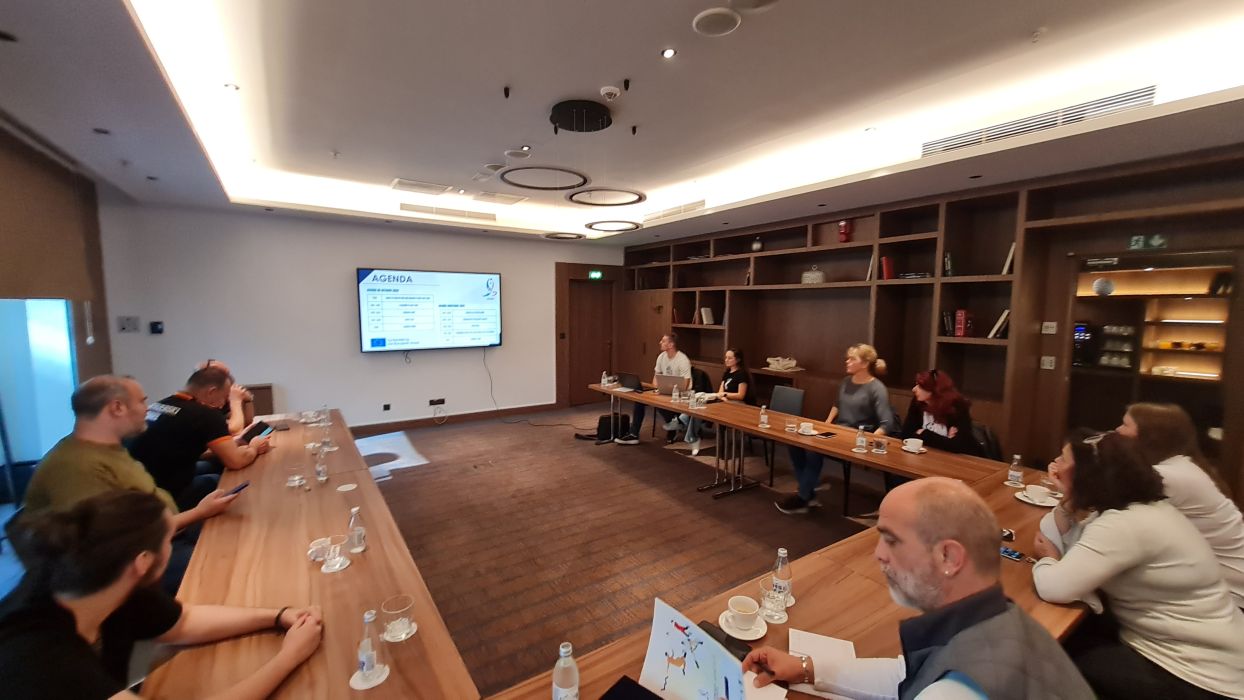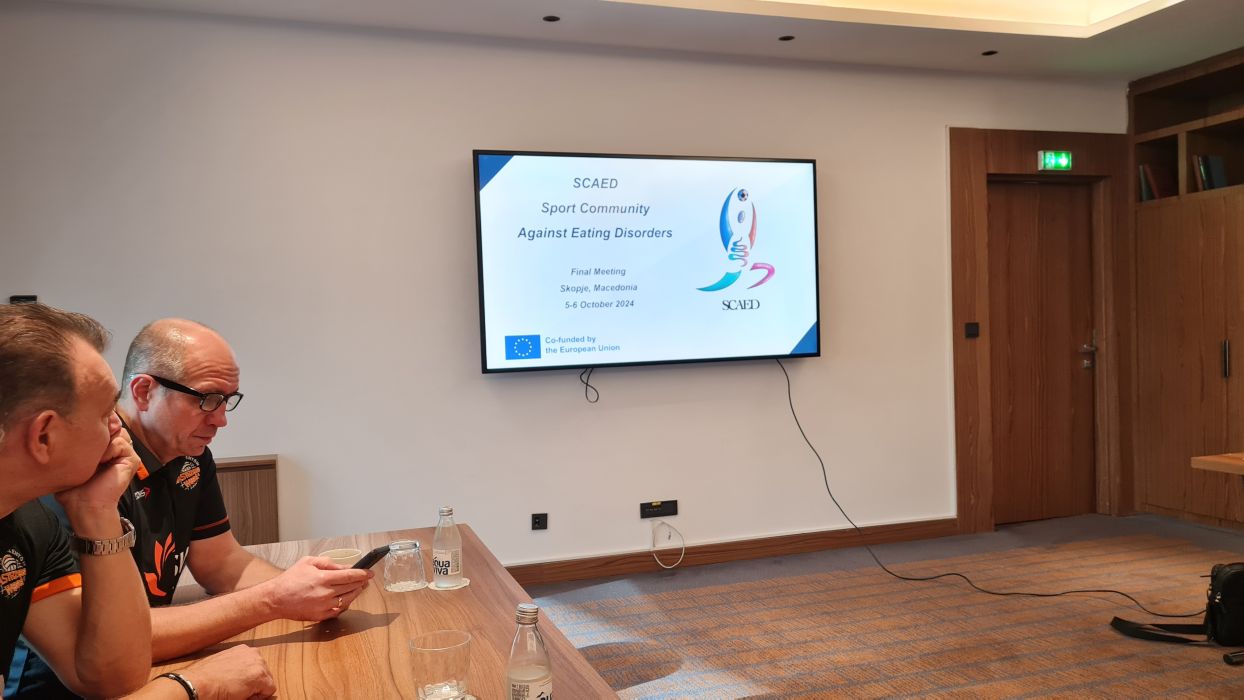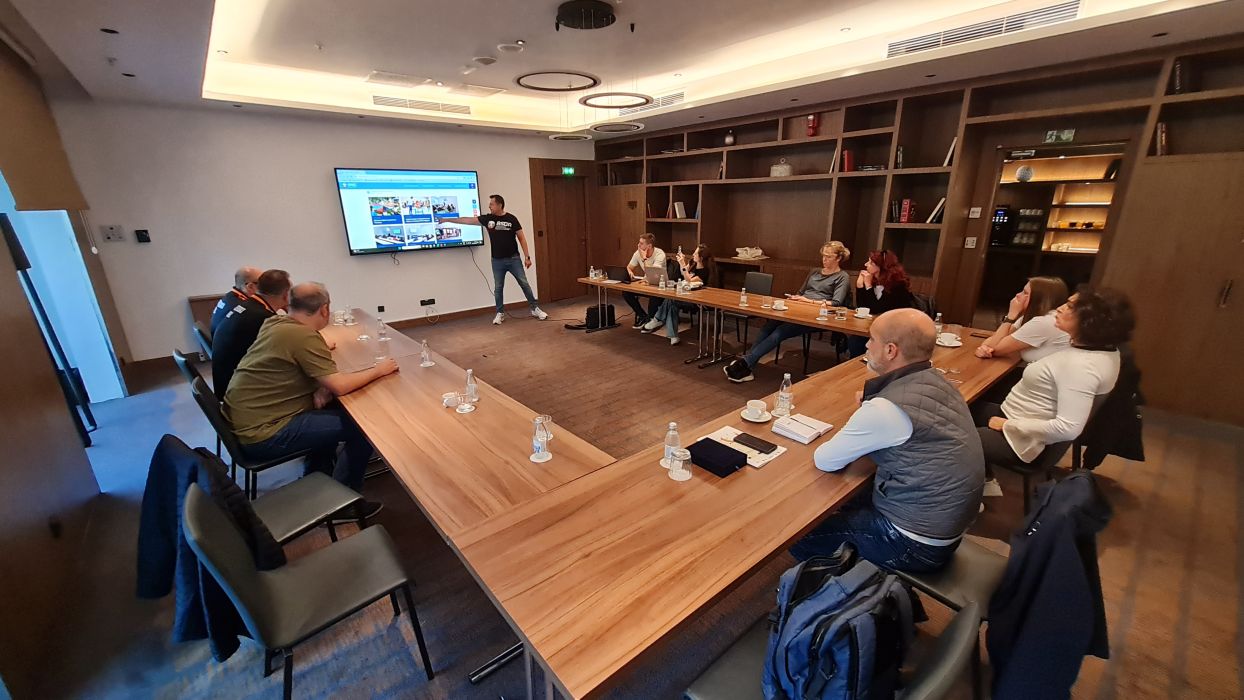NEWS

Final meeting under the SCAED project was held in Skopie


07.10.2024
In the period 4-7 October 2024, the final international partner meeting of the Sport Community Against Eating Disorders (SCAED) project took place in Skopje, North Macedonia. The project was co-funded by the Erasmus+ programme of the European Union and was attended by representatives from six European organisations, including Bulgaria, Italy, Poland, North Macedonia, Croatia and Greece. Ivaylo Zdravkov, board member of Bulgarian sports development association and Nikola Zdravkov, coordinator of the Youth Section of BSDA took part in the meeting.
The meeting was dedicated to discussing the challenges faced by athletes, their parents, coaches and sports organisations in the fight against eating disorders. The different types of eating disorders were discussed as well as the factors that lead to their development, especially among athletes actively engaged in high performance sports.
The SCAED project aims to raise awareness of eating disorders in the sports community and provide guidance on their prevention. According to recent research, eating disorders affect a significant proportion of athletes, particularly in disciplines where weight and appearance play an important role. Anorexia, bulimia and hyperphagia are known to occur frequently in athletes whose weight is directly related to their success in competitions.
During the meeting, it was highlighted that there are three main factors that contribute to eating disorders in sport. First, in sports such as athletics and biathlon, low body weight is a prerequisite for high performance. Second, in sports with weight-based categories, such as wrestling and judo, athletes often feel pressure to maintain a certain weight in order to be allowed to compete. Third, in disciplines such as gymnastics and figure skating, appearance and aesthetics are also important, leading to an increased risk of developing eating disorders.
Participants also discussed the important role of coaches and parents in the prevention of eating disorders. They are key figures who can help young athletes build a healthy relationship with food and avoid unsafe weight management practices. Coaches who have the necessary knowledge of nutrition and psychology can play a significant role in protecting the physical and mental health of their athletes.
Among the main goals of the SCAED project are to reduce the causes of eating disorders in amateur sport, and to educate coaches and parents. Specific emphasis was placed on the need for increased knowledge and skills to recognize early signs of eating disorders. This is a key step in timely intervention and support for athletes.
The SCAED project will continue to work in this direction by providing educational materials and guides to support sports organisations, parents and coaches in the fight against eating disorders. It is important that all stakeholders are aware of the risks and take the necessary measures to create a healthy sporting environment.
This initiative highlights that the problems associated with eating disorders are global and require collaboration at different levels, from individual athlete care to sports organisation policies.
The SCAED project aims to raise awareness of eating disorders in the sports community and provide guidance on their prevention. According to recent research, eating disorders affect a significant proportion of athletes, particularly in disciplines where weight and appearance play an important role. Anorexia, bulimia and hyperphagia are known to occur frequently in athletes whose weight is directly related to their success in competitions.
During the meeting, it was highlighted that there are three main factors that contribute to eating disorders in sport. First, in sports such as athletics and biathlon, low body weight is a prerequisite for high performance. Second, in sports with weight-based categories, such as wrestling and judo, athletes often feel pressure to maintain a certain weight in order to be allowed to compete. Third, in disciplines such as gymnastics and figure skating, appearance and aesthetics are also important, leading to an increased risk of developing eating disorders.
Participants also discussed the important role of coaches and parents in the prevention of eating disorders. They are key figures who can help young athletes build a healthy relationship with food and avoid unsafe weight management practices. Coaches who have the necessary knowledge of nutrition and psychology can play a significant role in protecting the physical and mental health of their athletes.
Among the main goals of the SCAED project are to reduce the causes of eating disorders in amateur sport, and to educate coaches and parents. Specific emphasis was placed on the need for increased knowledge and skills to recognize early signs of eating disorders. This is a key step in timely intervention and support for athletes.
The SCAED project will continue to work in this direction by providing educational materials and guides to support sports organisations, parents and coaches in the fight against eating disorders. It is important that all stakeholders are aware of the risks and take the necessary measures to create a healthy sporting environment.
This initiative highlights that the problems associated with eating disorders are global and require collaboration at different levels, from individual athlete care to sports organisation policies.

 Български
Български
















































